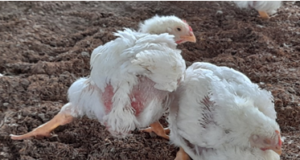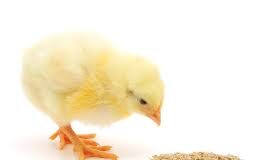
The industry alternative to animal based protein want to make a change in the way people eat. They are looking at plant-based options for regular consumers, and one such option is the plant-based egg/ vegan egg/ faux egg. Bringing this kind of change would not be easy unless given options that are beneficial, delicious, and affordable.
In India, eggs are highly relished animal-based foods, consumed across regions and religions with no taboo associated. Plant-based eggs extracts proteins from legumes and other plant sources to create a clean protein resembling a beaten egg. The protein extracts are further processed to resemble the texture of normal egg. The liquid egg is prepared from chickpeas, peas, soy, and moong beans. They can smoothly replace traditional eggs in recipes like omelette, scrambled eggs, egg rolls, etc. This alternative industry makes use of deep food science and advanced plant biochemistry to generate a sustainable, yet delicious egg replica, devoid of cholesterol, antibiotics, or any animal cruelty.
Eggs are relished all over the world because of their taste, texture, and functional properties. They contain globular proteins that form gels on thermal denaturation. The denaturation temperatures of the majority of plant proteins are above the proteins found in eggs, so they have to be heated to a higher temperature for more duration to form gels similar to a natural egg. The protein structure, concentration, salt, pH, and temperature conditions of plant proteins being used in faux eggs must be carefully controlled. The most challenging attributes of traditional eggs to simulate is their versatility. They are frequently used in a wide range of food recipes, including individual cooking (boiled, poached, fried, and scrambled), or as part of baked items, creams, desserts, dressings, mayonnaise, and sauces. The proteins in egg analogues should also provide emulsifying and foaming properties in products where these attributes are needed, such as dressings and sauces.
Plant-based egg analogues also contain additional ingredients to mimic the features of real eggs. For required texture, flavour and mouthful emulsified oils (eg. Canola oil) may be added which replaces functional attributes of lipoproteins in real eggs. For further texture modification and to inhibit the creaming or sedimentation of particles, gelling or thickening agents (eg. corn starch) may be added. Certain pigments like carotenoids which are obtained from carrots, or turmeric derived curcumin is added to give a typical yellowish colourto the egg. Variety of flavoring agents like garlic, onion, sugars, herbs, salts and spices may also be added to mimic the typical egg like aroma and taste. Preservatives (eg. nisin) and pH modulators (bicarbonates, citrates, or phosphates) are also added. Plant-based eggs also contain enzyme transglutaminase, thatcross-links proteins, thereby increasing the gel strength of the end product.
Critical issues related to the conventional egg industry
- Egg allergy: Such food allergy occurs due to overreaction of the immune system, where it erroneously identifies certain egg proteins as damaging and unwholesome. Both yolks and egg white contain proteins that can cause allergies, but allergy to egg whites is more common.
- High cholesterol: Cholesterol as dietary intake causes many health risks. A single large egg (50g) contains around 186mg of cholesterol. Though certain studies have concluded that egg cholesterol intake is not associated with high blood cholesterol, still it’s a debatable topic and certain groups of researchers still believe it to be a significant factor in increasing the risk of heart diseases.
- The egg industry is responsible for about 10% of total livestock emissions
- Animal welfare standards: Cages for laying hens used in egg production have met with substantial opposition due to welfare concerns.
- Food safety scandals like the 2015 salmonella outbreak in the United States, and the 2017 Fipronil eggs contamination in Europe and Asia involved the spread of fipronilinsecticide which contaminated human consumed chicken eggs and egg products.
Since plant-based eggs are cholesterol-free and allergen-free and prove to be a great alternative for people having cholesterol-related health issues and are allergic to egg proteins. They have no association with any animal-related diseases like salmonellosis or bird flu. Food safety-related scandals impact the economy of the industry, so vegan eggs provide a stable solution to such price volatilities. Plant-based egg units may prove to be more environmentally friendly compared to the conventional egg industry, though accurate data about its environmental impact is not yet available. There had been a change in the eating behaviours in response to COVID-19. Due to worldwide lockdowns, some areas faced meat shortages, the society had increased consciousness for environmental concerns and out of fear a desire to eat a healthier diet. Experimentations on a plant-based diet increased when people started utilizing quarantine to get healthier and improve their nutrition. Moreover, being at home during lockdowns instigated everyone to cook more and explore new flavours.
Just because vegan eggs are made with plants doesn’t mean they’re a superior nutritional alternative to chicken eggs. The nutritional quality of egg proteins is higher than that of plant proteins, such as the mung bean proteins used in the egg analogues, because they contain the full complement of essential amino acids. Moreover, the high sodium content in faux eggs makes them concerning for people suffering from hypertension. Egg analogues may also have different metabolic and physiological responses to the natural egg. Plant-based eggs are far more processed than natural eggs, and a diet high in processed foods has been linked to an increased risk of many health issues including obesity.
According to the latest livestock census, there has been a tremendous growth of 45% in the backyard poultry sector. This backyard poultry is mainly reared by rural households and contributes greatly to their daily nutrient requirement. Many layer type and dual-purpose strains of such backyard poultry have been developed. Many village households are dependent on backyard poultry for daily nutrition requirements and for the time being they are far away from vegan eggs. Plant-based egg market reaching a certain upper and upper-middle-class of metros and other big cities is expected in near future.
Does this newly emerged industry keeps the potential to really impact and decelerate one of the fastest-growing traditional layer industry of India? Maybe not in the near future. Both systems have their boons and banes. Vegan eggs are yet to create an individuality in the market which doesn’t mean they will negate the already established conventional egg industry. According to Rogers’ classification, we see that not everyone will immediately adopt a disruptive idea despite obvious benefits. Only a smaller proportion of the population are initial innovators. Both systems can thrive simultaneously due to differential demands, beliefs, economic and social status of the population.

Shivam Bhardwaj1,Oshin Togla1,Vandana Yadav1
1Animal genetics and breeding division, NDRI, Karnal
















